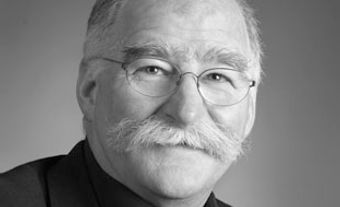William Hugh Kenner, literary critic (born 7 January 1923 in Peterborough, ON; died 24 November 2003 in Athens, Georgia). Hugh Kenner is regarded as one of the most important commentators on literary modernism and is especially known for his revival of the reputation of American poet Ezra Pound with his definitive 1971 critical biography, The Pound Era.
Education and Teaching Career
Kenner attended high school at the Peterborough Collegiate Institute in Peterborough, Ontario, where his father, Dr. H.R.H. Kenner, taught Latin and Greek, and his mother, Mary Kenner, taught classics. He attributed his early love of reading and passion for literature to having suffered severe hearing loss as a result of childhood influenza. He received a BA and MA from the University of Toronto, where he studied with communications theorist Marshall McLuhan. His MA work on British writer G. K. Chesterton won him a Governor General's Gold Medal Award.
With the encouragement of McLuhan, Kenner pursued his PhD at Yale University, where he won a prestigious ACLS Fellowship. Studying with Cleanth Brooks, a celebrated scholar and one of the founders of the influential New Criticism, he wrote his dissertation on Pound, entitled The Poetry of Ezra Pound, which was published under that title. The book won the John Addison Porter Prize at Yale.
Kenner taught at Assumption College (now University of Windsor), 1946–48, and was a long-time professor of English and Chair at the University of California at Santa Barbara, 1950–73. In 1973, he was appointed Andrew W. Mellon Professor of Humanities at Johns Hopkins University, Baltimore, where he taught until 1990. Kenner was the Franklin and Callaway Chair in English at the University of Georgia from 1990 until his retirement in 1999.
Writing
In 1948, McLuhan and Kenner visited Ezra Pound in St. Elizabeths Hospital in Washington, DC, where he was incarcerated pending prosecution for treason for radio broadcasts he made in Italy in support of fascist dictator Benito Mussolini. Pound advised Kenner to get to know the major writers of his time personally, and with letters of introduction from Pound, he did just that. Kenner befriended the likes of T. S. Eliot, Samuel Beckett, Wyndham Lewis, William Carlos Williams, Marianne Moore, Basil Bunting and Louis Zukofsky.
Kenner's published monographs include studies of G. K. Chesterton, Ezra Pound, Wyndham Lewis, James Joyce, T. S. Eliot, Samuel Beckett and R. Buckminster Fuller as well as modern Irish writers, American modernist writers and the 17th-century schools of poetry of Donne and Jonson. Among his more than 30 influential books are Gnomon: Essays in Contemporary Literature (1958), The Pound Era (1971), The Stoic Comedians: Flaubert, Joyce & Beckett (1974), The Counterfeiters (1985) and A Sinking Island: The Modern English Writers (1988). Kenner also wrote some 600 articles and reviews.
Kenner remained a Canadian citizen while working almost exclusively in the United States. However, in 1985, he came to Toronto to hold the Northrop Frye Chair. In 1997, he delivered the CBC Massey Lectures, which were published as The Elsewhere Community.

 Share on Facebook
Share on Facebook Share on X
Share on X Share by Email
Share by Email Share on Google Classroom
Share on Google Classroom

